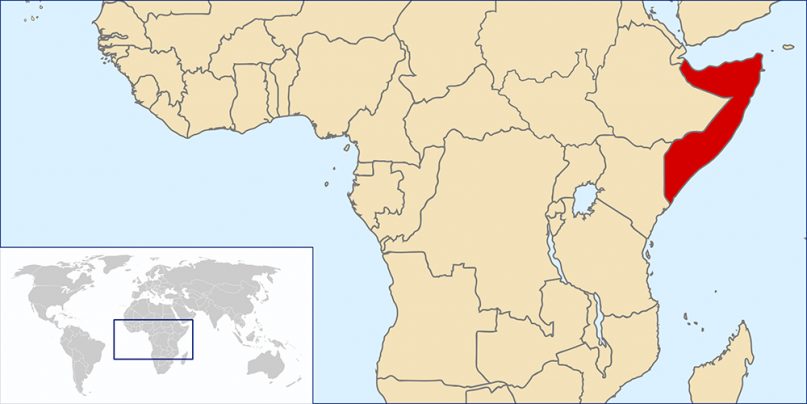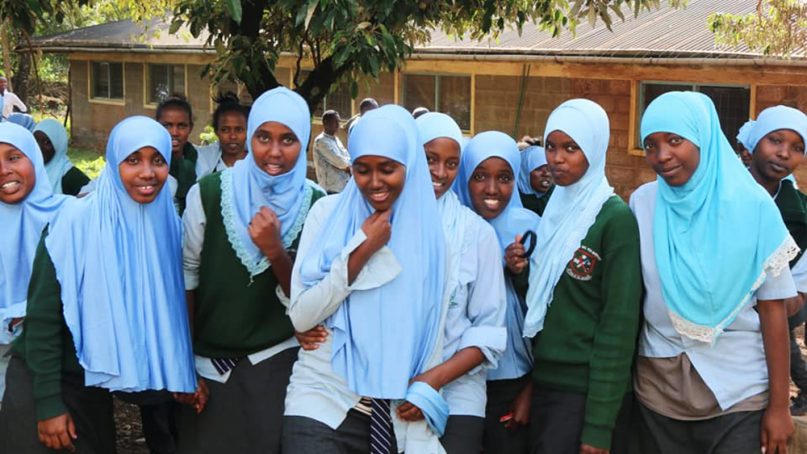MOGADISHU, Somalia (RNS) — When Sheikh Ibrahim Hassan returned to Somalia seven years ago after studying Islam in Yemen, he began a campaign to end the genital mutilation of his country’s young women.
Hassan, 52, a religious teacher in Mogadishu (“sheikh” is a title commonly given in Africa to senior Muslim clerics), said that during his study of Shariah, he realized that female genital mutilation was not part of Islam, though many religious leaders across the Middle East perform the procedure in the name of Islam.
“I was shocked to learn that Islam does not support female genital mutilation,” Hassan told Religion News Service. “The majority of Muslims have lived in darkness for centuries and many of our girls have died as a result of the practice and others dropped out of school due to early marriages.”
In 2018, the United Nations released a report showing that more than 70 million girls will have undergone FGM by the year 2030. The report also revealed that religion was among the factors impeding efforts to end the practice, which involves removing part or all of the clitoris and labia, most often by untrained traditional surgeons.
FGM, which can cause profound health problems, is considered a rite of passage to womanhood, and girls who have undergone the procedure often abandon school and marry afterward. Those who are not cut are usually stigmatized and discriminated against.
In Somalia, 98 percent of the female population between the ages of 15 and 49 has been subject to FGM, according to the United Nations Children’s Fund.

Somalia is located in eastern Africa. Map courtesy of Creative Commons
Through sermons at various mosques and through local media, Hassan has made strides in convincing his listeners that FGM is a cultural practice and not religious.
“It’s very hard to convince people to abandon the practice but when you search the Quran and the Sunnah there is no reference to FGM,” he recently said in a sermon that was broadcast on radio. “We are killing the dreams of our girls by subjecting them to this brutal act. Those carrying the practice have inherited it from their ancestors and not teachings from the Quran.”
Recently, he rescued more than 200 girls from Somaliland who had been taken to a traditional circumciser by their parents to undergo the procedures without the girls’ consent. Hassan said he had to convince parents to believe that the practice was not a religious requirement.
Slowly, other Islamic religious leaders and government officials have joined the fight against FGM. In July, Somalia announced its first prosecution for female genital mutilation after the death of a 10-year-old girl due to complications from female genital mutilation.
The country’s attorney general, Ahmed Dahir, said he was investigating the death of the girl, who suffered severe bleeding after her parents took her to a traditional circumciser.
“We are investigating the death and it will be our first-ever prosecution against female genital mutilation,” he said. “We are serious and we will go to court.”
Last year, Zeinab Abdi, wife of the Somali president, Mohamed Farmaajo, organized a major meeting of more than 100 religious leaders to discuss ways to end female genital mutilation.

Somali girls attend school in northern Kenya on Oct. 25, 2018. Many religious leaders in Somalia are urging young females not to go through female genital mutilation and instead continue with school. RNS photo by Doreen Ajiambo
Religious leaders have also urged politicians to pass legislation to punish offenders, but many elected officials have failed to criminalize FGM for fear of losing votes.
Nazlin Umar, chair of the National Muslim Council of Kenya, said the fight to end female genital mutilation in Somalia and elsewhere depends on both rallying religious leaders and politicians to the cause and on raising awareness among parents and girls about its dangers.
“Religious leaders and politicians should tell people the truth what Quran says about FGM,” said Umar. “The practice is contrary to Islamic teachings. The prophet never conducted it on any of his beloved daughters and used to ask people to allow married couples to enjoy marital bliss, meaning their sexual rights.”
But above all, said Hassan, success depends on breaking the link between religion and FGM in women’s minds.
“The practice is usually initiated and carried out by women, who see it as a source of honor and fear that failing to have their daughters and granddaughters cut will expose the girls to social exclusion,” he said. “But it’s not a religious requirement. It’s against the Islamic teachings and I will continue to tell people the truth wherever I go to end the practice.”





